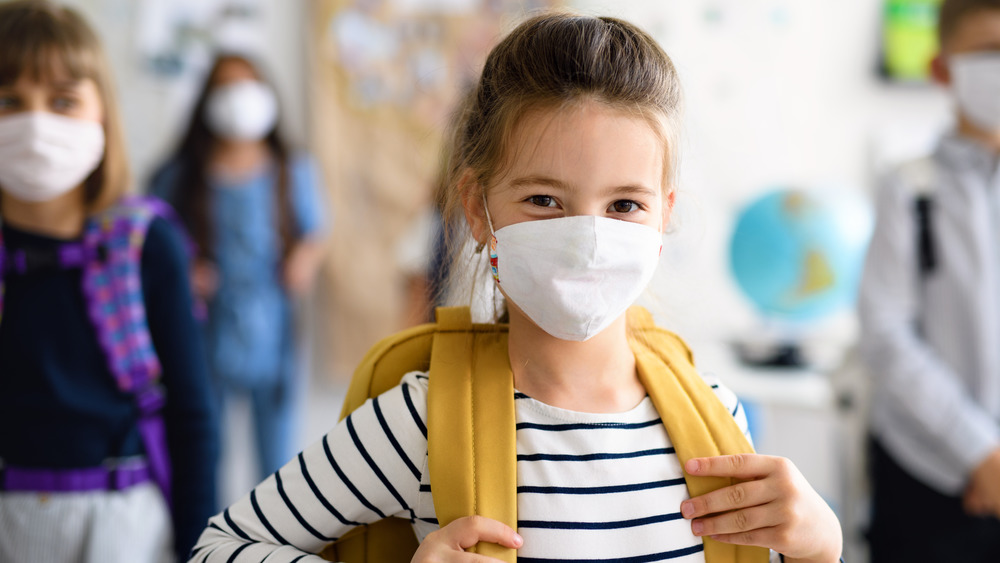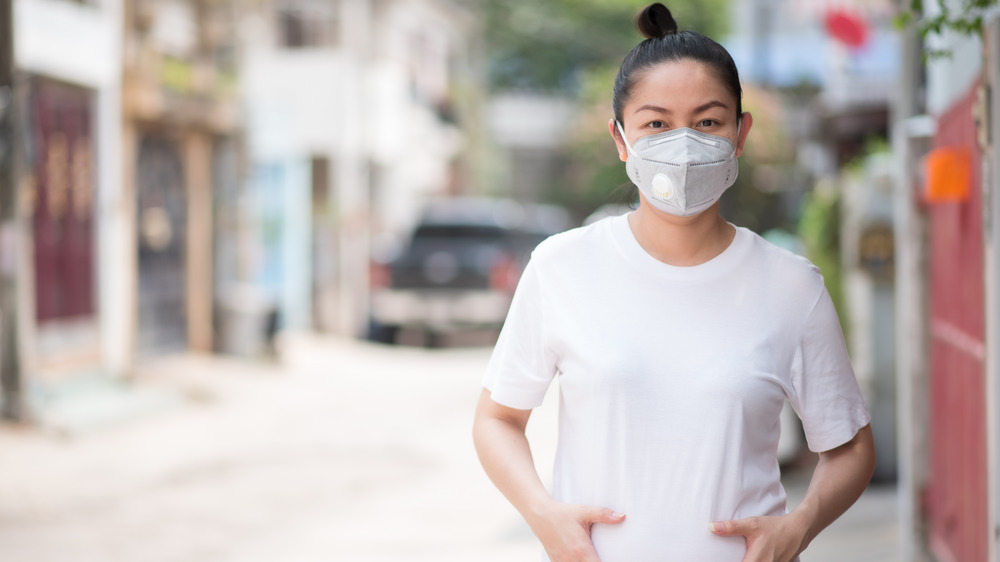The Truth About The COVID-19 Vaccine's Availability For Pregnant Women And Kids
There has been much good news about the speed with which the COVID-19 vaccine could be available to the general public. Most recently, a Centers for Disease Control task force met and determined that first responders and nursing home residents would be among the first U.S. citizens to receive the two-dose vaccine (via The New York Times). Essential workers and those at higher risk for getting seriously ill with COVID-19 would be next. The hope is obviously that everyone can get vaccinated as soon as possible — but two groups of individuals are not cleared to get the vaccine and at this time, there are big questions about when that may change.
First, as reported by The New York Times, kids have not gotten clearance to be vaccinated. According to Today, Pfizer, only one of the pharmaceutical companies that have a vaccine at the ready, have tested their vaccine on children as young as 12. But it's worth noting their trials have only included 100 kids between the ages of 12 and 15. More trials are planned.
As Dr. Anthony Fauci recently explained, "Before you put it into the children, you're going to want to make sure you have a degree of efficacy and safety that is established in an adult population, particularly an adult, normal population" (via The Washington Post). There are even doubts kids will receive the vaccine before next school year.
Pregnant women and the COVID-19 vaccine
Pregnant women have also not been included in the coronavirus vaccine trials, for obvious reasons. Of course, we know vaccinating pregnant women against pertussis and the flu is essential — but consider that these immunizations were only deemed safe after they were tested on women who didn't know they were pregnant at the time.
These individuals were able to be tracked to see how they fared long term, something that obviously wouldn't be possible if getting pregnant women — who are more likely to get seriously ill if they get infected — vaccinated quickly is the goal.
The bottom line is that as Dr. Yvonne Maldonado, a professor of pediatric infectious disease at Stanford University and member of the American Academy of Pediatrics' Committee on Infectious Diseases, explained to Today, "The sooner we can get a vaccine out to everybody, you can reduce transmission to everyone. As long as there are people out there who can spread it, we're just not going to get rid of this pandemic."

